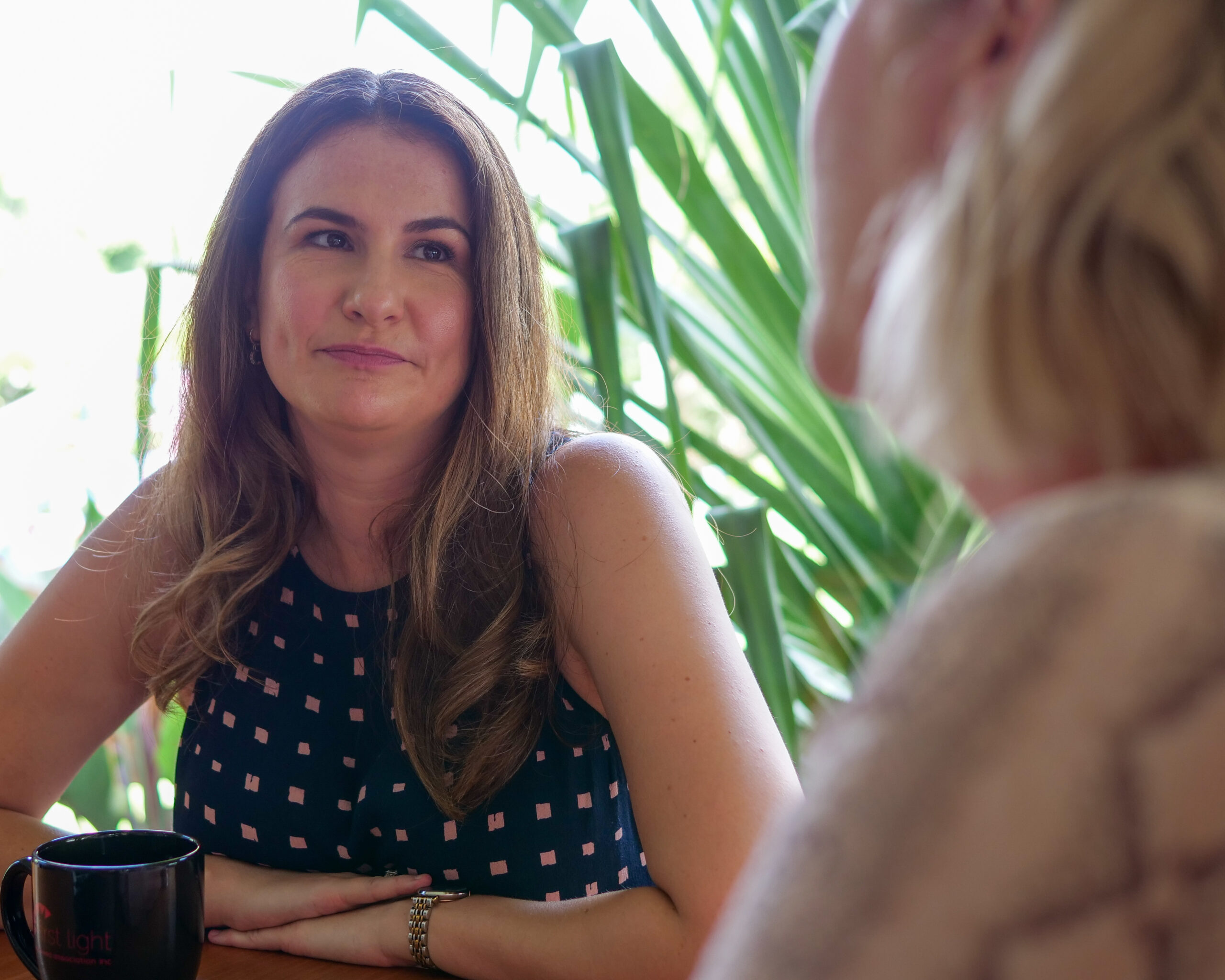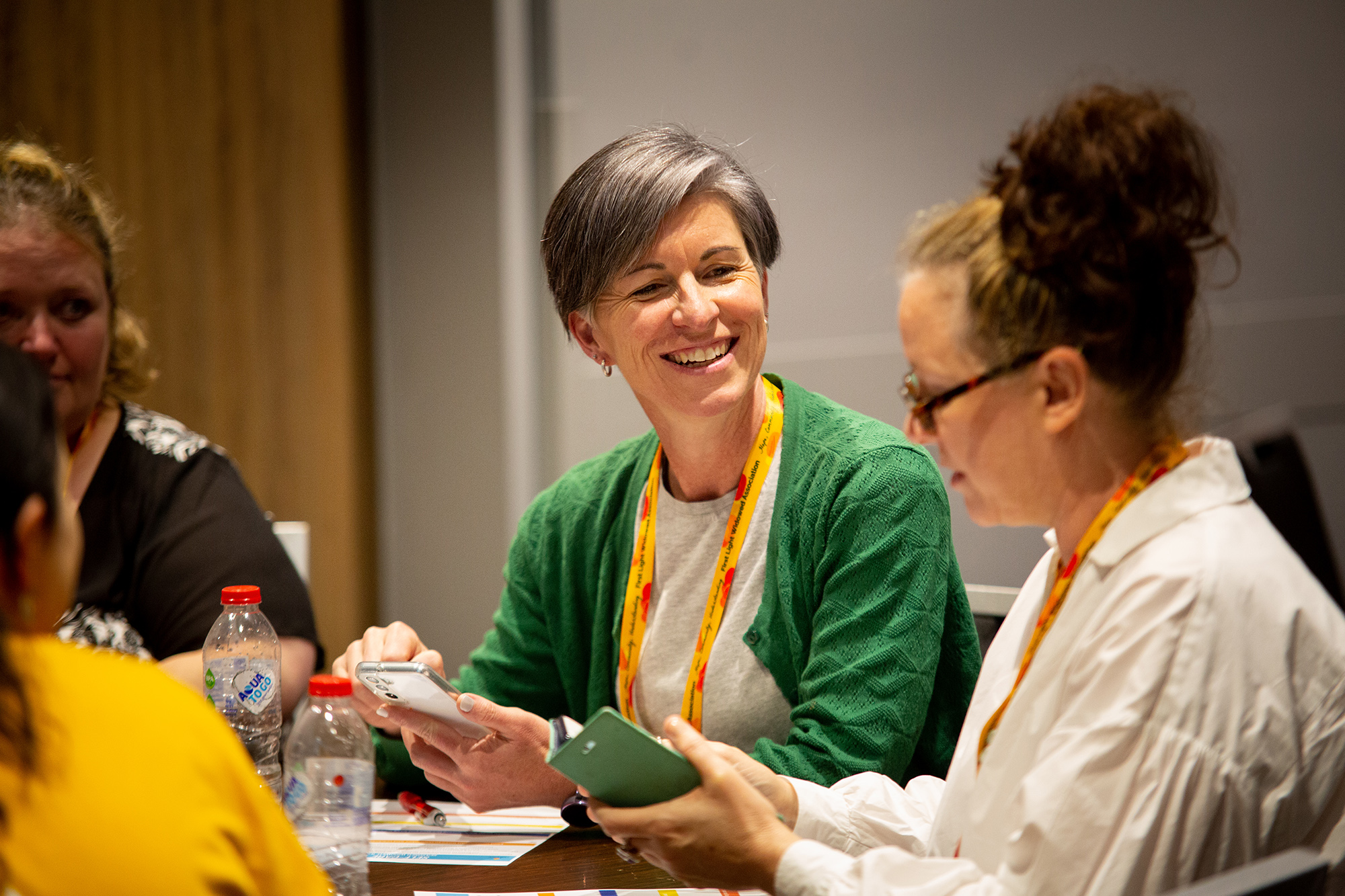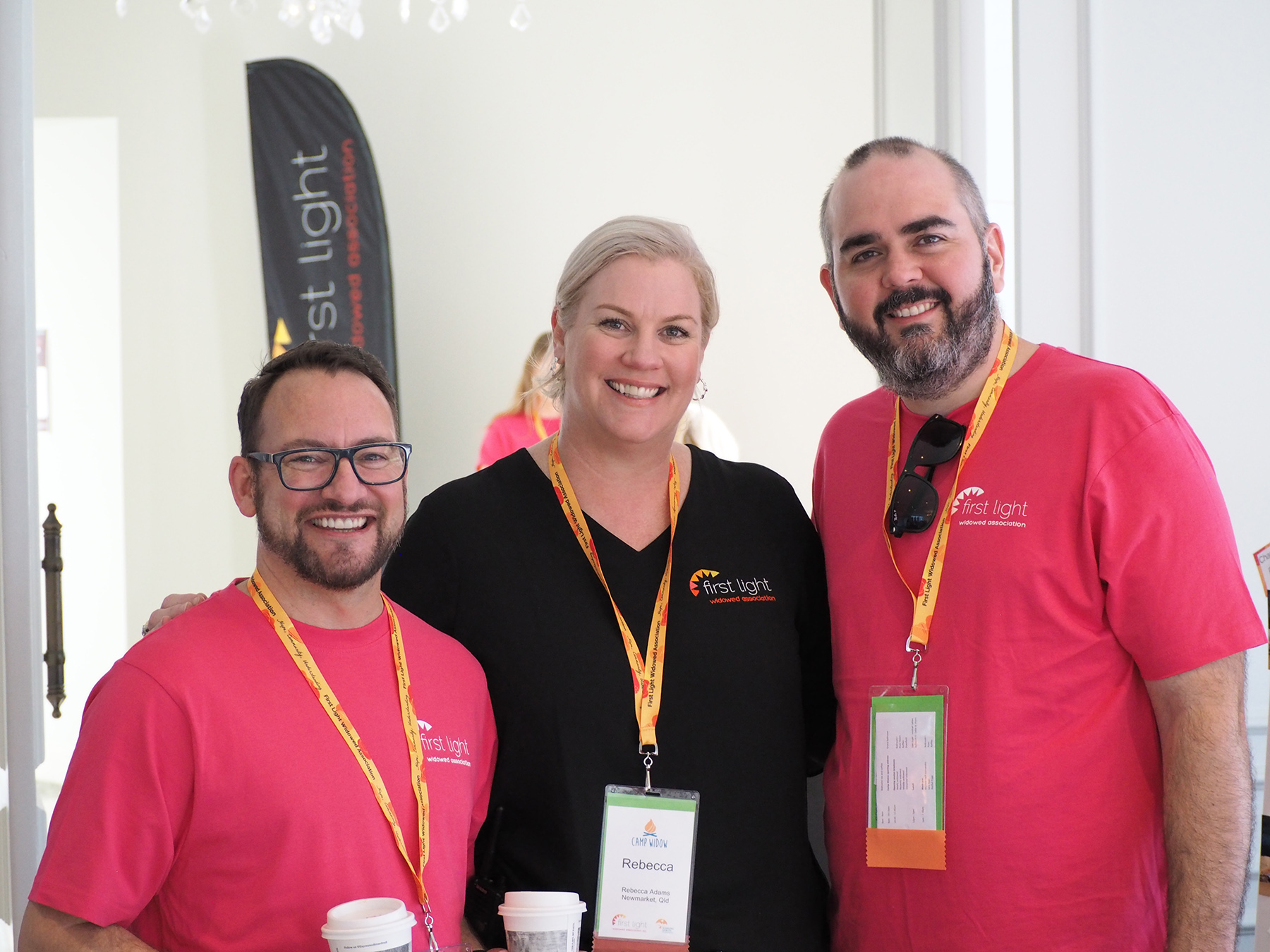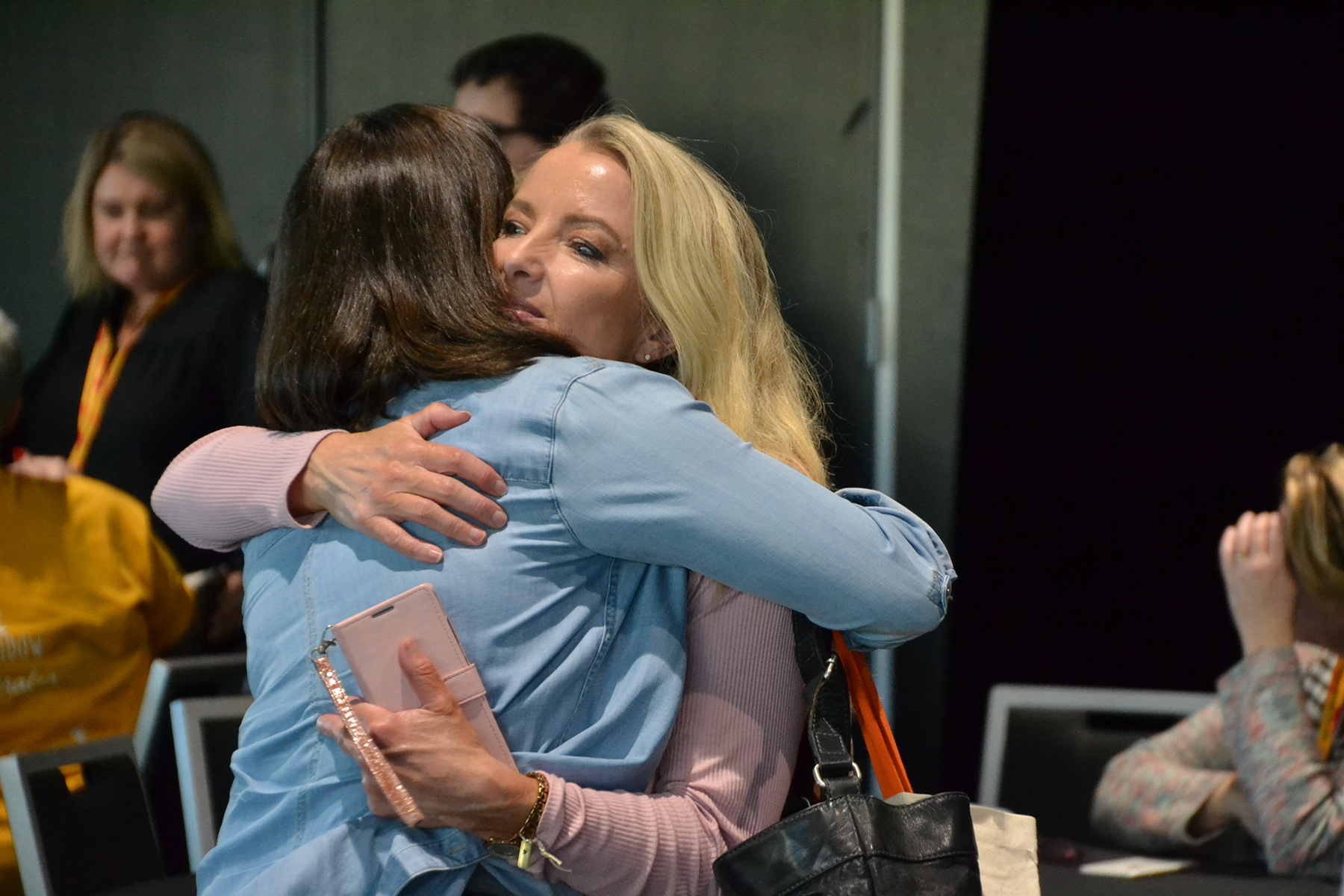Someone I care about is widowed
If someone you care about has lost their partner, it can be difficult to know how to help. Here are some important things to know about supporting someone during the time following the difficult loss of a loved one.
Important to know: asking for help is difficult, even when offered
When someone we care about becomes widowed, it can be hard to see them in such deep pain.
We naturally want to help, but many widowed people find it challenging to either accept or ask for assistance. ‘What do you need?’ – the question itself can feel so overwhelming.
Often they don’t know what help they need, or the effort of asking is just too much.
Phrases like “I’m here for you, call me if you need anything“ – although said with the best intentions – aren’t very helpful.
While this is well-meaning, a newly widowed person often doesn't know what they need, and are in a state of shock.


How to help in a meaningful way
Rather than waiting for a widowed person to tell you what they need, there are ways to make your help and assistance easier to accept.
The support they need will look different as time passes, so the way you show up for your widowed person will change over the weeks, months and years.
Often, many newly widowed people also put pressure on themselves to ‘cope’ alone, and feel like they cannot ask for help, or that friends and family will become resentful of being called upon over time.
It’s also important to know that when if or when they do call, it probably took a lot of courage and energy to do so. If you can’t follow through with the help you offered, it could cause them further hurt.
- Look for ways to assist without waiting for someone to reach out.
- Try to be there if help is asked for. Turn up, be there, and make it happen.
- Don't wait to be asked, be pro-active by offering something tangible and direct. For example, 'Can I come over on Wednesday and mow the lawn?' or 'can I take the kids to a movie on Saturday?'.
- While being forthright with your offers of support, it is also important to respect boundaries and comfort levels of the widowed person. If they are not ready to accept your help, be careful not to apply pressure or make them feel unheard.
Practical ways to lighten their load
Here are some of the ways that you can help when someone that you care about is widowed...
Be there; and help where you can best
Look for ways to offer practical help, depending on your skills, abilities, and strengths.
Ask if they have a trusted friend or family member coordinating all offers or help and delegating tasks and chores. If not, can you be this key point-of-contact and take the burden off their plate? TIP: Only offer if you can guarantee to deliver.
Some examples are:
- Mowing or gardening.
- Handy person repairs and maintenance.
- Cooking and cleaning.
- Grocery item drop-offs.
- Running errands.
- Offer to pick up and drop off laundry or ironing.
- Fundraise for cleaning, gardening or meal delivery services.
- If you don't live close, you could order groceries, meal deliveries or helpful services.
- You could even send a card with a voucher for a massage or facial.
- Be sure to be mindful of, and keep within the boundaries and comfort levels of the person you want to help.
Emotional support is just as important as practical support
One of the most simple – and important – things you can do for a widowed person is to create a safe space for them to express their pain. In simple terms, this means to sit with them while they cry.
We are conditioned to wanting to fix people when they are hurt, but this is a pain you can not take away – as much as we all wish you could!
Crying is a healthy and necessary part of the grieving process, by letting them share their tears without judgement you are validating their pain and giving them some release.
So pass the tissues, offer a hug, tell them to let it out and cry along with them if you need to.
Resist the urge to use unhelpful phrases like 'time heals all wounds' or 'he/she wouldn't want you to cry'. Instead, try "This really sucks, I'm sorry, I'm here with you and it's ok to cry."
Tell them about our Newly Widowed Packs
We offer Newly Widowed Packs, with printed information and resources for newly widowed people.
While we have information and resources available for widowed people here on our First Light website, it can be hard to retain information we read when we’re grieving. Having a physical copy of information can be extremely valuable, especially during times of distress. Our brains struggle to retain information while processing shock and trauma, so our physical Newly Widowed Packs can be held, re-read and even written on – which can be especially valuable to newly widowed people.
You can request a newly widowed pack to be sent out to you free of charge, to pass along to them, donate the costs of the newly widowed pack (to help us send out more packs to more people), or pay it forward an cover the cost of sending one or multiple packs to widowed people in the future.
Check-in consistently, near important dates, and over time
Help isn’t only needed in the first few weeks and months; the active grieving process can take years. Often, there can be a lot of support immediately after a death, and it fades away after a couple of months. This leads to loneliness, as if others have forgotten and ‘moved on’ and we’ve been left behind.
Visits can be exhausting and overwhelming, but set yourself a reminder in your phone or diary to call regularly. If the calls don’t get answered, don’t be offended. Text instead, or email. If there’s no response, keep trying anyway until the widowed person is ready (or until you’re asked to stop. Then set a reminder in your diary to try again in a few months).
Widowed people often struggle the most around holidays or special occasions, so if you know their loved one’s birthday or wedding anniversary is coming up, check in, and lend a hand.
"When my husband died, one of his closest friends texted me or called every week for almost two years – just to let me talk about him, cry, vent or listen to the stories from someone else who cared about him too. It was the greatest support and something I’ll never forget." - Rebecca, First Light Founder & CEO.

If they have children: help share the load
If the widowed person has children, offer to help with school drop-offs and pick-ups or take them to their regular extracurricular activities.
Could you commit to looking after the children for one day or night every fortnight or have them for a sleepover once a month?
This can give the widowed parent some much-needed time to themselves, even if they spend that time crying in bed (a valuable release they may not often get while taking care of kids)
Don't overstay your welcome, and don't over-promise
When you visit, be careful not to stay too long, unless they want the company, as widowed people are often exhausted at the thought of entertaining guests.
It can be helpful to let the widowed person know that you don’t expect them to entertain you or prepare for your visit; that you’re there for them.
It’s often helpful to bring something to share together when you do drop by too.
Most importantly, don’t make offers to help if you can’t follow through. The last thing a widowed person needs right now is to feel abandoned or let down.
Know and respect boundaries
It’s important to look for the boundaries and be sure not to overstep them.
Some widowed people talk about how they felt like they lost control after a death.
You may think that by emptying the garbage bin or removing their loved one’s tooth brush so they don’t have to see it is a helpful thing to do, but it can be very confronting and way too soon.
Even well-meaning visitors who are trying to help can make a widowed person feel suffocated or useless.
Never offer unsolicited advice. And even if you’re asked, never push it.
Avoid the word ‘should’ at all costs! It only makes us feel like we’re failing.
Be polite, and don't pry
While you may genuinely be concerned about a widowed person’s financial and administrative affairs following the loss of a partner, it’s important to remember that the same common decency and discretion is important around sensitive, private and financial matters, even when someone is grieving.
Avoid asking about their financial situation or giving unsolicited advice about their plans for the future.
Also, importantly, avoid asking for details about how their partner died unless they offer the information themselves.
If a widowed person wants to share with you and offers the information, then that’s great and can be very therapeutic for them, but otherwise, don’t ask.
Say their loved one's name
Don’t be afraid to mention their loved one. It’s not as if the widowed person has forgotten, in fact, most likely they’re quietly remembering and missing them.
By saying you miss them too, it gives the widowed person permission to include their person in the conversation or event. When we hear things like ‘he would have loved that movie’ or ‘I remember how she used to laugh at things like this’, we know their memory is living on, and nothing warms our hearts more.
It can also be helpful to think of ways to include their loved one in special occasions (but first check to see if the widowed person is comfortable with that rather than catching them by surprise).
For example, at Christmas, you could place a framed photo of their loved one on the dining table. If you are planning a special event that their loved one would have otherwise been a part of (like a wedding or a christening) consider including a reading from their favourite book, or playing a song they loved.
Don't be scared, or avoid them
We know there’s nothing you can say or do to take away our pain. That feeling of helplessness is hard but we appreciate your courage and strength by being there anyway.
As difficult as it may be, don’t avoid your widowed friend because of your own fears and insecurities. Believe us, people are treating them differently and it’s isolating and cruel so try to act normal.
It’s okay to admit that you are nervous or you don’t know how to help, in fact, your honesty will be a breath of fresh air.
Don’t assume they don’t want to participate in an activity just because it will remind them of their loss.
They may decline social invitations for a range of reasons, but don’t let that stop you from inviting them from future events. Eventually they will feel ready to take small steps and try new things again. Please be patient with your widowed person if they direct misguided anger or frustration at you. Pain manifests in many different ways so try not to take it personally and give them some grace.

Other things to be mindful of
Continue to invite them to events and occasions as you usually would, so they know they have not been left behind.
Don’t pretend everything is normal, or the person’s grief can feel as if it’s being dismissed.
By providing practical help, offering emotional support, and respecting their boundaries, you can help a widowed person navigate this difficult time.
Remember that your kindness and presence can make a huge difference in their lives.
Hope, community, understanding
Join our community for access to information, resources, events, and a network of widowed people for peer support. Joining is free, with options to become a financial supporter to keep us running and helping others.

